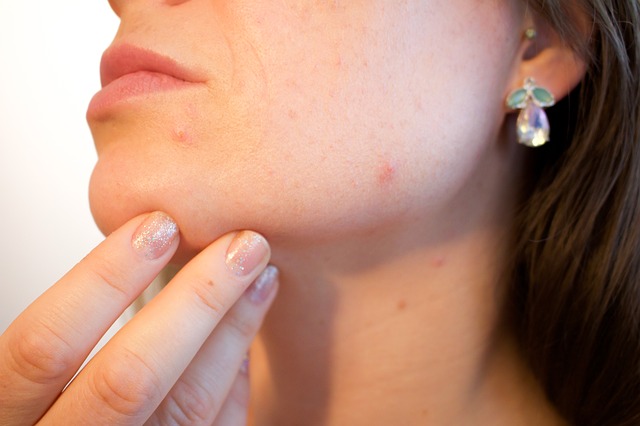Genetic Factors in Folliculitis: What Beauticians Need to Know
As a beautician, understanding the root causes of skin conditions can enhance your ability to provide effective treatments and advice to your clients. One such condition that often perplexes both beauticians and clients alike is folliculitis. While environmental factors and hygiene play significant roles in this condition, it's crucial to note that genetic factors also contribute to its development.
Folliculitis, characterized by inflammation of the hair follicles, can manifest as small red bumps, pus-filled blisters, or itchy, painful skin. While it may seem straightforward, the underlying causes can be complex, with genetics playing a pivotal role. Recognizing these genetic predispositions can help beauticians tailor their approach to managing and advising on this condition.

The Role of Genetics in Folliculitis
Genetic factors influence how our skin responds to various irritants and infections. People with a family history of skin conditions may have a predisposed sensitivity, making them more susceptible to folliculitis. Understanding these genetic components is vital for beauticians aiming to provide personalized skincare solutions.
How Genetic Predisposition Affects Folliculitis
Individuals with certain genetic markers may have heightened immune responses to bacteria or fungi, leading to inflammation of the hair follicles. This predisposition can be exacerbated by external factors such as poor hygiene or the use of irritating skincare products. For beauticians, it is essential to recognize these triggers and educate clients about maintaining a skincare regimen that minimizes irritation.
Additionally, certain hereditary conditions, such as keratosis pilaris, can mimic or exacerbate folliculitis symptoms. Beauticians should be aware of these overlapping conditions to avoid misdiagnosis and provide appropriate care.
Environmental and Lifestyle Influences
While genetics play a crucial role, environmental factors like humidity, sweat, and friction from clothing can also contribute to folliculitis. Understanding the impact of climate on skin conditions can be invaluable for beauticians advising clients on how to manage their skin effectively.
Moreover, lifestyle choices, including the use of shared personal items, can increase the risk of spreading bacteria leading to folliculitis. Beauticians should encourage clients to avoid shared personal items to reduce the likelihood of infection.
Microbiome and Its Connection to Folliculitis
The skin's microbiome, a complex ecosystem of microorganisms, plays a pivotal role in maintaining skin health. An imbalance in this ecosystem can lead to overgrowth of harmful bacteria, causing conditions like folliculitis. Beauticians can educate clients on maintaining a healthy skin microbiome through proper skincare habits and the use of microbiome-friendly products.
Further understanding can be gained by exploring the microbiome and folliculitis. This knowledge empowers beauticians to recommend targeted treatments that support a balanced skin environment.
Hormonal Influence
Hormones can significantly impact skin health and are often a hidden cause of folliculitis flare-ups. Hormonal changes during puberty, pregnancy, or stress can increase oil production, clogging pores and leading to folliculitis. Beauticians should be aware of the role of hormones in folliculitis development to offer advice that aligns with clients' changing hormonal states.
Regular Dermatologist Check-Ups
While beauticians can provide valuable skincare advice, encouraging clients to have regular dermatologist check-ups is crucial. Dermatologists can offer insights into genetic factors and other underlying causes of folliculitis, ensuring comprehensive care. For more information, consider reading about the importance of regular dermatologist check-ups.
Furthermore, external resources like the Health Direct guide on folliculitis can provide clients with additional information to better understand their condition.
Conclusion
Folliculitis is a multifaceted condition with genetic, environmental, and lifestyle influences. As a beautician, understanding these factors allows you to offer more comprehensive and personalized care to your clients. By staying informed about the genetic underpinnings of folliculitis and its triggers, you can help your clients achieve healthier, clearer skin.

FAQs
What are the primary causes of folliculitis?
Folliculitis is primarily caused by bacterial or fungal infections, but genetic predisposition can make individuals more susceptible. Environmental factors and lifestyle choices also play a significant role.
How can beauticians help manage folliculitis?
Beauticians can provide advice on proper skincare routines, recommend products that support the skin's microbiome, and educate clients about avoiding triggers that may exacerbate folliculitis.
Is folliculitis completely curable?
While folliculitis can often be managed effectively, complete cure depends on its underlying cause. For genetic-related cases, ongoing management may be necessary.

